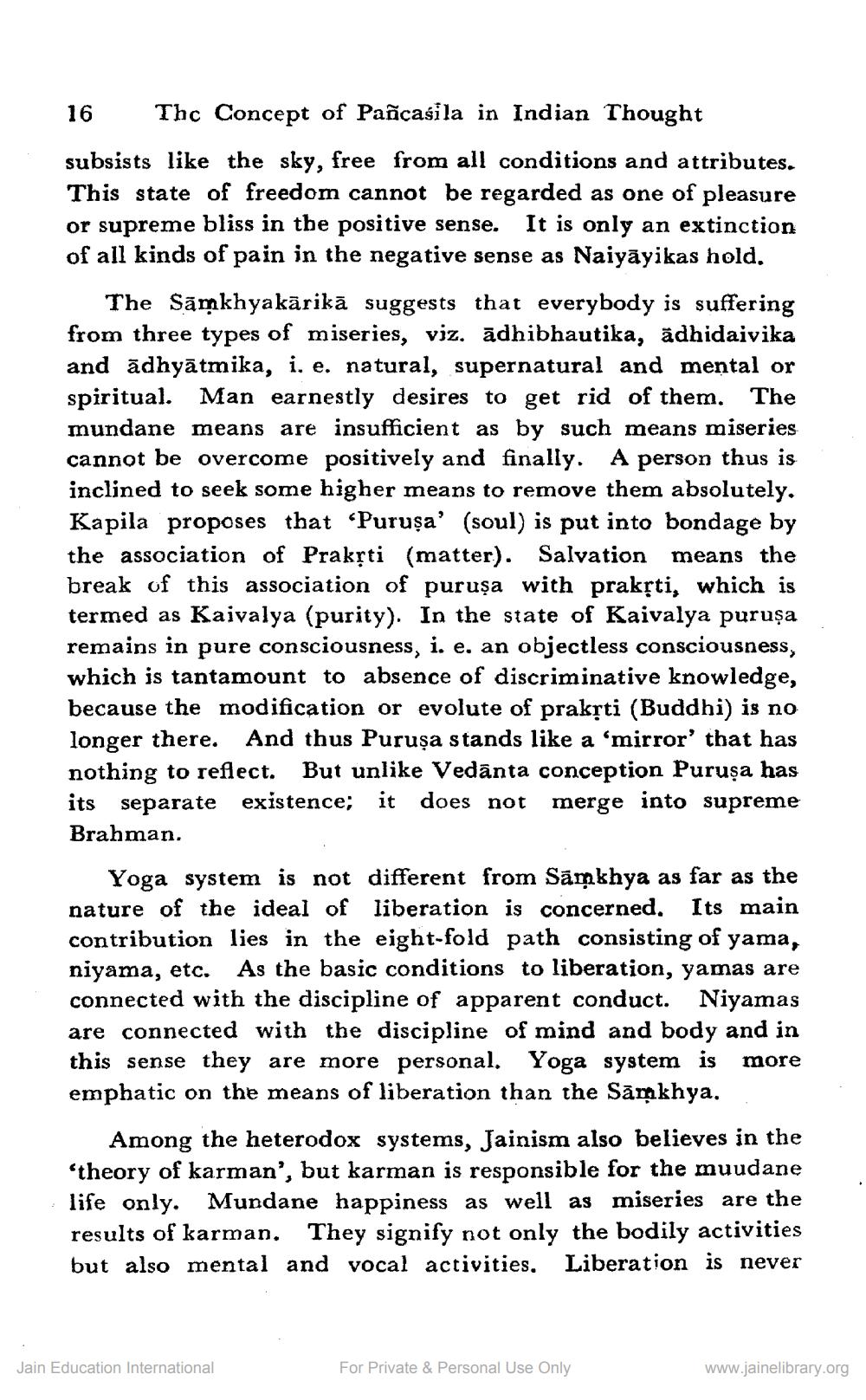________________
16 Thc Concept of Pañcasila in Indian Thought subsists like the sky, free from all conditions and attributes. This state of freedom cannot be regarded as one of pleasure or supreme bliss in the positive sense. It is only an extinction of all kinds of pain in the negative sense as Naiyāyikas hold.
The Sāņkhyakärikā suggests that everybody is suffering from three types of miseries, viz. adhibhautika, ādhidaivika and ādhyātmika, i. e. natural, supernatural and mental or spiritual. Man earnestly desires to get rid of them. The mundane means are insufficient as by such means miseries cannot be overcome positively and finally. A person thus is inclined to seek some higher means to remove them absolutely. Kapila proposes that “Puruşa’ (soul) is put into bondage by the association of Prakști (matter). Salvation means the break of this association of puruşa with praksti, which is termed as Kaivalya (purity). In the state of Kaivalya puruṣa remains in pure consciousness, i. e, an objectless consciousness, which is tantamount to absence of discriminative knowledge, because the modification or evolute of prakrti (Buddhi) is no longer there. And thus Puruşa stands like a 'mirror' that has nothing to reflect. But unlike Vedanta conception Puruşa has its separate existence; it does not merge into supreme Brahman.
Yoga system is not different from Sāmkhya as far as the nature of the ideal of liberation is concerned. Its main contribution lies in the eight-fold path consisting of yama, niyama, etc. As the basic conditions to liberation, yamas are connected with the discipline of apparent conduct. Niyamas are connected with the discipline of mind and body and in this sense they are more personal. Yoga system is more emphatic on the means of liberation than the Sārakhya.
Among the heterodox systems, Jainism also believes in the 'theory of karman', but karman is responsible for the muudane life only. Mundane happiness as well as miseries are the results of karman. They signify not only the bodily activities but also mental and vocal activities. Liberation is never
Jain Education International
For Private & Personal Use Only
www.jainelibrary.org




